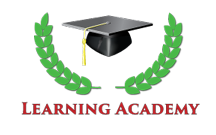
- Description
- Objectives
- Outline
- Materials
- System Requirements
- Watch a Demo
Our Literature course explores short stories, poetry, and dramatic plays by immersing students in literary traditions through carefully selected pieces of literature. First we will step into the world of the short story by gaining an understanding of plot, point of view, tone, settings, and character. Next we move onto essential tools that poets use and we explore various forms of poetry. Finally, we identify Drama’s Greek roots and famous works of Shakespeare. This course analyzes classic and contemporary pieces to provide a well-rounded literary experience.
Prerequisite: None
After completing this course, you should be able to:
- Recall the basics of creating a short story: theme, point of view, characters
- Identify how to explore literary concepts in short stories
- Recognize essential tools poets use to create works of art and various forms of poetry
- Differentiate between stylistic differences of classic Greek dramas and Modern dramas
- Recall popular works of Shakespeare
Literature Module 1
Beginning Our Literary Journey
- Entering into a Literary Experience
- The Red Hat
- A&P
- Oranges
- Responding to Literary Experiences
- Writing About What You Read
- How Use of Persona Affects Responses to Literature
- The Road Not Taken
- The Story of an Hour
- What Literature Contributes to Our Lives
- Literature Restores the Past
- Dream Boogie
- Literature Stimulates the Imagination
- The Fog
- Literature Glorifies the Commonplace
- I Hear America Singing
- Literature Evokes Emotions and Links Feeling to Thinking
- The Blue Bowl
- Literature Upholds a Vision of the Ideal
- Excerpt from Ulysses
- A Story for Reflection
- The Welcome Table
Literature Module 2
Introduction to the Short Story
- How Stories Began
- Features of the Short Story
- Country Lovers
- Writing About Short Stories
- Journaling as an Analytical Resource
- Writing an Analytical Essay in Response to a Short Story
- The Poet – Ralph Waldo Emerson
Literature Module 3
Short Story Elements I
- Plot
- Point of View
- Tone
- Irony
- Illustrating Elements
- The Gift of the Magi
- Examples of Irony
- The Minister’s Black Veil by Nathaniel Hawthorne
Literature Module 4
Short Story Elements II
- Setting
- Character
- An Annotated Story Illustrating Elements of Setting and Character
- A Worn Path
- A Story for Reflection on the Elements of Setting and Character
- The Things They Carried
- The Tell-Tale Heart by Edgar Allan Poe
Literature Module 5
Short Story Elements III
- Theme
- Symbolism
- An Annotated Story Illustrating Theme and Symbolism
- Hills Like White Elephants
- Allegory – When Everything is a Symbol
- Motif – A Tool to Highlight Theme
- A Story Illustrating Allegory and Motif
- Good Country People
Literature Module 6
Exploring Literary Concepts in Short Stories
- Exploring Plot and First-Person Point of View
- How I Met My Husband
- Exploring Plot, Third Person Point of View, and Irony
- The Diamond Necklace
- Exploring Theme and Symbolism
- Cathedral
- Comparing Stories with Similar Themes
- Story of the Lost Son
- A Father’s Story
- Exploring Existential Thought
- Existential Themes in Literature: Abandonment, Despair, Anguish
- A Hunger Artist
Literature Module 7
Poetry
- The Sound of Poetry
- Rhyme
- Rhythm
- When I Set Out for Lyonnesse
- Free Verse and Haiku
- The Red Wheelbarrow
- The Apprentice Priestling
- Poetry is Evocative: It Draws Out Emotions
- Boy at the Window
- Poetry is Imaginative: It Creates Images
- Poetry is Concise: It Compresses Ideas
- Poetry is Provocative: It Stimulates Thought
- Wild Geese
- Poetry is Inspired by an Impulse for Artistic Expression
- Constantly Risking Absurdity
- Poetry
- Importance of Poetry
- Amazing Grace
- Reading and Listening to Poetry
- Writing About Poetry
- She Dwelt Among Untrodden Ways
- Two Short Poems for Listening and Exploration
- To Waken an Old Lady
- We Real Cool
Literature Module 8
Identifying the Poet's Essential Tools
- The Speaker (Persona)
- Not Waving but Drowning
- I’m Nobody! Who Are You?
- Chivalry
- Sounds and Moods
- Preludes: I
- Dover Beach
- Figurative Language
- Metaphor
- O Captain! My Captain!
- Simile
- The Oak
- Symbol
- Other Important Figures of Speech
- Metonymy
- Personification
- Apostrophe
- Hyberbole
- Theme
- How Imagery Reveals Theme
- My Papa’s Waltz
- How Symbolism and Allusion Reveal Theme
- Nothing Gold Can Stay
- Home to Roost
- How Narrative (Storytelling) Reveals Theme
- Hay for the Horses
- How Irony Reveals Theme
- Peacock and Nightingale
- How Setting Reveals Theme
- 347 [When night is almost done]
- Meeting at Night
- Parting at Morning
- How Time Contributes to the Development of Theme
- To His Coy Mistress
- The Raven
Literature Module 9
Forms of Poetry
- Narrative Poetry
- The Epic
- The Ballard
- La Belle Dame sans Merci
- The Boxer
- Lyric Poetry
- She Walks in Beauty
- The Sonnet
- On His Blindness
- Sonnet
- Ozymandias
- The Ode
- A Morning Song
- The Elegy
- In Memoriam A.H.H.
- Futility
- The Dramatic Monologue
- My Last Duchess
Literature Module 10
Poems for Reflection and Comparison
- Poems for Reflection
- The New Colossus
- Child of the Americas (1986)
- The Unknown Citizen
- You, Reader
- The Garden of Love
- Mirror
- Elegy for Jane
- What It’s Like to Be a Black Girl
- The Solitary Reaper
- To the One Upstairs
- The Second Coming
- Poems for Comparison
- Two Shakespearean Sonnets
- Sonnet 116
- Sonnet 73
- Two Views on Acceptance
- Love Calls Us to the Things of This World
- Grief Calls Us to the Things of This World
- Two Views on Love
- How Do I Love Thee?
- Prospice
- Two Views on Remembering the Past
- Fern Hill
- Tears, Idle Tears
- Two Views on Death
- Because I Could Not Stop for Death
- Buffalo Bill’s Defunct
- Two Views on the Value of Affluence
- A Summer Morning
- Richard Cory
- Two Views on Facing the Inevitable
- Let Evening Come
- Do Not Go Gentle into That Good Night
- Two Views on Hope
- Hope Is the Thing with Features
Literature Module 11
Drama: An Introduction and Greek Roots
- What is Drama?
- Performance: The Unique Art
- Elements of Drama
- Drama’s Greek Roots
- Performance in Greek Drama
- Comedy and Tragedy
- Sophocles and Oedipus Cycle
- Guidelines for Reading a Play
- Antigone
Literature Module 12
Shakespearean Drama
- Who was William Shakespeare?
- The Globe Theater
- The Old Globe
- The New Globe
- Greek vs. Shakespearean Tragedy
- Reading Shakespeare: Poetry and Prose
- The Tragedy of Macbeth
- Characters
- Themes, Symbols, Motifs, Chance, Irony
- Scenes from Macbeth
Literature Module 13
Modern Drama
- Modern Dramas
- Riders to the Sea (1902)
- Trifles (1916)
- Modern Comedies
- The Importance of Being Earnest (1895)
- Mistaken Identity
**Outlines are subject to change, as courses and materials are updated.**
Ed4Career is committed to being both environmentally conscious and making it easier for you to study! We’re making your education mobile! All of our textbooks are now provided as eTextbooks. You can access them on your laptop, tablet, or mobile device and can study anytime, anywhere.
The move away from physical books to eTextbooks means you get the latest, most up-to-date version available. This also makes your training more accessible, so you can study anywhere you have your phone or tablet. The best part is that all materials are included in your training cost so there are NO extra fees for books!
Internet Connection
- Broadband or High-Speed - DSL, Cable, and Wireless Connections
*Dial-Up internet connections will result in a diminished online experience. Classroom pages may load slowly and viewing large audio and video files may not be possible.
Hardware Requirements
- Processor - 2GHz Processor or Higher
- Memory - 1 GB RAM Minimum Recommended
PC Software Requirements
- Operating Systems - Windows 7 or higher
- Microsoft Office 2013 or higher. Also, you could use a general Word Processing application to save and open Microsoft Office formats (.doc, .docx, .xls, .xlsx, .ppt, .pptx)
- Internet Browsers - Google Chrome is highly recommended
- Cookies MUST be enabled
- Pop-ups MUST be allowed (Pop-up Blocker disabled)
- The Kindle Reader App or VitalSource Bookshelf App are needed for many of our courses (No special equipment needed. This can be downloaded for FREE onto your computer.)
- PowerPoint Viewer (if you do not have PowerPoint)
- Adobe PDF Reader
- QuickTime, Windows Media Player &/or Real Player
MAC Software Requirements
- Operating Systems - Mac OS x 10 or higher with Windows
- Mac office programs or a Word Processing application to save and open Microsoft Office formats (.doc, .docx, .xls, .xlsx, .ppt, .pptx)
- Internet Browsers- Google Chrome is highly recommended
- Cookies MUST be enabled
- Pop-ups MUST be allowed (Pop-up Blocker disabled)
- The Kindle Reader App or VitalSource Bookshelf App are needed for many of our courses (No special equipment needed. This can be downloaded for FREE onto your computer.)
- PowerPoint Viewer (if you do not have PowerPoint)
- Adobe PDF Reader
- Apple QuickTime Media Player


